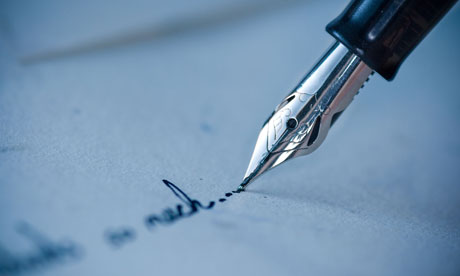
Have you ever wondered where some of the most common used sign-offs we use on a day to day basis actually originated from? Well, so did we! Free word Finder dug into the eight most used sign-offs, how they’re used properly and where they originated from. Enjoy and we’re signing off.
1. Best Regards
We found that the number one sign-off is Best Regards. The word regard, as many other words, have originated from the old French regarder which in this case would mean “to look at”. We still can find this meaning in our current day-to-day and can be viewed or thought of as with a particular feeling. When the word is used with an utterance “regards” often indicates a sentiment or affection which can be followed with warm, kind or best. The most commonly used variation “warm regards” is often viewed as a great balance between a professional and friendly tone.
2. Cheers
The word cheers originated from, you guessed it, the UK where in the early 1990’s people would say cheers as a salutation before drinking. Nowadays however, on both sides of the ocean people use the word cheers as a sign-off. Cheers can also be interpreted as a sense of happiness or being in a good mood. Considering the joyful history of the word, the word cheers is mainly used in instances of joy or celebratory fashion.
3. Cordially
You’ll be surprized that cordially originates from the latin root word “cor” which is short for corazon. That is the main reason when the term corcially first was used it had a more impassioned sense. In this day and age the word has lost its sentimental tone and is considered more formal and old fashioned, which in turns makes the word cordially one of the least desirable of our list when you want to keep your relation friendly.
4. Thanks
The word thanks as a sign-off is evidently used for expressing gratitude and can be interpreted in many ways. When we dig back into the word thank we find it interesting to mention that in Old English thank or panc had the sense of “thought”. Thank is currently one of the most used sign-offs in emails, especially to people you personally know (in the likes of “thanks a bunch”, “thanks in advance” or simply “thanks”.
5. Sincerely
Yet another word in our list originates from the Latin language. In Latin sincerus stands for something that is pure, clean or untained. In its earliest definition the word sincerely meant free of falseness which comes down to clean/pure from the Latin counterpart. It was only around the 1700s when people started using sincerely as a valediction whenever signing off a letter which can be interpreted as “genuine”. Most commonly this sign-off is seen by many as best suited for letters given its formal tone and not necessarily used in e-mails.
6. Best
Best is one of the shortest sign-offs in our list. This sign-off is short for a set of expressions such as “my best”, “best wishes” and “all the best” which all express a goodwill to the receiver. The root of the word “best” stems from the Old English word “boot”, which simply meant “good” when it was admitted into the English dictionary. Using best as a sign-off can be viewed abrupt and impersonal by some, while others will find it very suitable due to it being upbeat.
7. Respectfully
The word respectfully on its own is often viewed as very formal when used as a sign-off. However, the beauty of words allows any creative person to pair respectfully with another word for a more personalized touch. Yet another word in our list that originates from the Latin language “respectus” which literally means “the action of looking back”. Depending on your correspondence pair in a breezy word and sign with a creative and personalized touch.
8. Yours
Yours and yours truly have long been favored as valedictions by great writers such as Charles Dickens who always signed letters to associates and companions with either faithfully or heartily yours. Many argue that “yours” might come across as too intimate whenever used as a sign-off for colleagues. However, it also offers a range of fun ways to pair yours in a personal context.
